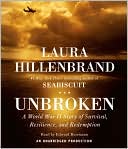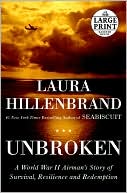The Englishman's Daughter: A True Story of Love and Betrayal in World War One
In the first terrifying days of World War I, four British soldiers found themselves trapped behind enemy lines on the western front. They were forced to hide in the tiny French village of Villeret, whose inhabitants made the courageous decision to shelter the fugitives until they could pass as Picard peasants.\ The Englishman’s Daughter is the never-before-told story of these extraordinary men, their protectors, and of the haunting love affair between Private Robert Digby and Claire Dessenne,...
Search in google:
In the first terrifying days of World War I, four British soldiers found themselves trapped behind enemy lines on the western front. They were forced to hide in the tiny French village of Villeret, whose inhabitants made the courageous decision to shelter the fugitives until they could pass as Picard peasants. The Englishman’s Daughter is the never-before-told story of these extraordinary men, their protectors, and of the haunting love affair between Private Robert Digby and Claire Dessenne, the most beautiful woman in Villeret. Their passion would result in the birth of a child known as “The Englishman’s Daughter,” and in an act of unspeakable betrayal, a tragic legacy that would haunt the village for generations to come. Through the testimonies of the villagers and the last letters of the soldiers, acclaimed journalist Ben Macintyre has pieced together a harrowing account of how life was lived behind enemy lines during the Great War, and offers a compelling solution to a gripping mystery that reverberates to this day. Los Angeles Times Book Review - Susan Salter Reynolds Everything comes alive . . . the village feuds, the village characters . . . the hunger of the winter of 1914.
Chapter One\ The Angels of Mons\ On a balmy evening at the end of August in the year 1914, four young soldiers of the British army–two Englishmen and a pair of Irishmen–crouched in terror under a hedgerow near the Somme River in northern France, painfully adjusting to the realisation that they were profoundly and hopelessly lost, adrift in a briefly tranquil no-man’s-land somewhere between their retreating comrades and the rapidly advancing German army, the largest concentration of armed men the world had ever seen.\ Privates Digby, Thorpe, Donohoe, and Martin were small human shards from a mighty explosion that had been primed for years, expected by many, desired by some, and detonated just six weeks earlier when a young Bosnian Serb named Gavrilo Princip pulled a revolver in a Sarajevo back street and mortally wounded Archduke Franz Ferdinand, heir to the imperial throne of Austria-Hungary. Europe was now ablaze, and the first battles of a long and brutal war had been fought. The lamps were going out all over Europe, but in the small town of Villeret, deep in the Picardy countryside, the lamps were just being lit, watched, from under a hedge, by four pairs of hungry British eyes.\ The four Tommies, of whom the oldest was only thirty-six, had barely a clue of their whereabouts, but knew well enough that they were not supposed to be there. According to official military theory, they should have been at least one hundred miles north, in Belgium, winning a swift and decisive victory against the Hun. But, then, the war was not going according to plan: neither the Schlieffen Plan, dreamed up by a dead German aristocrat, to encircle France rapidly from the north; nor France’s Plan XVII, which called for the gallant French soldiery to attack the enemy with such élan that the Germans would immediately lose heart; nor the British plan, to defend Belgian neutrality, support the French, reinforce the might of the British Empire, and then go home.\ Barely a fortnight earlier, the British Expeditionary Force, or BEF (this was a war that appreciated a clipped acronym), had begun crossing the Channel in troopships, to be met with beer and flowers in the August sun. Some of the soldiers were surprised, even a little disappointed, to discover they were not going to fight the French again. They swapped cap badges for kisses and then happily headed east and north towards Belgium to teach the Kaiser a lesson: thirty thousand jingling horses and eighty thousand men clad splendidly in khaki and self-confidence. The poet Rupert Brooke thanked God,\ Who has matched us with His hour,\ And caught our youth, and wakened us from sleeping,\ With hand made sure, clear eye and sharpened power . . .\ To the east, the first of the two hundred thousand Frenchmen whose élan would be extinguished forever in this single summer month were already rotting into the soil of Alsace and Lorraine. And down through Belgium hurtled the German behemoth, sweeping aside the impregnable fortifications of Liège and Namur and moving on across the great industrial plains to where the unsuspecting British army was busily arranging itself into neat battalions. “The evening was still and wonderfully peaceful,” recalled one British officer, scouting in advance of the main body of troops. “A dog was barking at some sheep. A girl was singing as she walked down the lane.” He watched the darkness settle gently over the land. “Then, without a moment’s warning, with a suddenness that made us start and strain our eyes to see what our minds could not realise, we saw the whole horizon burst into flames. To the north, outlined against the sky, countless fires were burning . . . A chill of horror came over us.”\ At Mons, above the Belgian border, on August 23, the British stiff upper lip was busted by a roundhouse punch that seemed to come from nowhere, as wave upon wave of field grey came crashing down from the north, three-quarters of a million German men. At first the outnumbered British fought with calm efficiency, then determination, then desperation. For some, the fear was worse than the blood-letting. Retreating inside France, three days later they turned and fought again at Le Cateau, leaving more dead on the battlefield than Wellington had lost at Waterloo. The retreat resumed. Sure hands now trembling, clear eyes clouded, the depleted army scrambled south, a pell-mell withdrawal that would last two weeks and take them to the edge of Paris.\ An old Frenchwoman stood on a cottage doorstep and watched the ragged British soldiery stumbling through her village. As the mounted officer passed, she spat a livid stream of sarcasm at him: “You make a mistake,” she hissed. (The young captain would never forget the sting of it.) “The enemy is behind you. Are you not riding in the wrong direction?”\ For two hundred miles the German army pursued, looting, burning, and wielding the weapons of summary massacre and collective retribution, for this was the policy of Schrecklichkeit, organised ghastliness, a determination to inflict such horrific repression on the civilian population that it would never dare to resist. Hostages were shot and bayonetted, priests executed, homes and towns destroyed, and at Louvain, in a signal act of desecration, the great library of more than two hundred thousand books was put to the torch. Some German soldiers were appalled at their own might. Ernst Rosenhainer, an educated and sensitive young infantry officer, was torn between exultation and repulsion as he watched civilians fleeing from their homes: “It was heart-rending to hear a woman beg a high-ranking officer, ‘Monsieur, protégez-nous!’ ” he wrote. The local people watched in disbelief as refugees, Belgian and then French, streamed through the villages of the Somme and the Aisne, a “broken torrent of dusty misery,” dragging overladen donkey and dog carts, carrying their children and, along with them, lurid tales of German brutality. Behind followed the BEF: horse-drawn ambulances with mangled wounded and the long lines of exhausted and hungry soldiers, “an unthought-of confusion of men, guns, horses, and wagons. All dead-beat, many wounded, all foot sore.” At their backs, plumes of smoke marked the steady German advance in a spectacular frenzy of arson. An English officer turned around from a small incline to see “the whole valley and plain burning for miles.”\ “We must allow the enemy no rest,” declared a German battalion commander, and so the British rear-guard fought as it fled. Nerves frayed, bellies empty, minds warping from lack of sleep, some retreating soldiers dozed on the march while others began to see ghosts and castles along the way. Flight forged its own legends.\ The “Angels of Mons” were said to have been seen hovering over the retreat, the shimmering spectres of English bowmen killed at Agincourt in 1415, now resurrected to protect their fleeing countrymen.\ The Times correspondent wrote: “Amongst all the straggling units that I have seen, flotsam and jetsam in the fiercest fight in history, I saw fear in no man’s face. It was a retreating and broken army, but it was not an army of hunted men . . . Our losses are very great. I have seen the broken bits of many regiments.”\ The lines stretched and snapped, authority dimmed, the strag-glers multiplied, and the treasured distinctions of regiment and division blurred as units fragmented, re-formed, or broke away. Whatever the British reading public might be told, many soldiers were terrified. When the horses were allowed to rest, their legs folded. Unable to march farther, some men threw away theirequipment and lay down to die or await the enemy. Officers who would have shot any man who acted thus a day or two earlier, did not now look back. “That pained look in the troubled eyes of those who fell by the way will not easily be forgotten by those who saw it. That look imposed by circumstances on spent men seemed to demand all forgiveness from officers and comrades alike, as it conveyed a helpless and dumb farewell to arms.” The neat martial simplicities of the army that had disembarked on the coast of France became hazy in retreat. Most men marched unquestioningly on. Some deserted. Some looted. Some hid. Others died of exhaustion. An officer of the Royal Fusiliers recalled a private from Hackney, “a most extraordinarily ugly little man in my company who could not march one bit . . . On the second day of the Retreat he collapsed at the side of the road and died in my arms. I have no record of his name, but as a feat of endurance and courage I cannot name his equal.”\ A general noted sternly that a “good many cases of unnecessary straggling and looting have taken place,” and summary courts-martial were held. Some could not resist the lure of an empty home, as a hiding place or source of plunder, and hunger saw soldiers pulling chocolate from the pockets of dead men or chewing raw roots scrabbled out of a field. In Saint-Quentin, two senior British officers looked on their beaten men and agreed with the petrified city mayor that surrender would be preferable to a losing fight and the probable death of countless civilians in the crossfire. It was a most humane decision, for which both officers were cashiered and disgraced.\ Later, the retreat would be rendered into history as a courageous action that had held up the Germans for long enough to scupper Field Marshal Schlieffen’s plan, ensuring that the advance would finally be stopped on the line of the River Marne. But to those who took part in it, the retreat was a grim shambles, just a few shades short of a rout, “a perfect débâcle.” The BEF had been severely wounded. (Most of the rest of the body would be hacked up at Ypres, a few months later.) Of the eighty thousand British men who had come to France to fight a short war, twenty thousand were killed, wounded, captured, or found to be missing on the long retreat from Mons.\ In the wake of the limping army, like the detritus from some huge and bloody travelling fair, lay packs, greatcoats, limbs, canteens, makeshift graves, dead horses, and living men. In woods, ditches, homes, and haylofts, alone and in small bands, surviving shreds of the khaki army felt the battle roll over them, and then heard it rumble south. The advancing German troops were thorough in flushing out the enemy remnants: Walter Bloem, novelist, drama critic, and a captain in the Brandenburg Grenadiers, recalled how advancing German hussars, rightly suspecting that British soldiers were hiding among the newly cut corn, “did not trouble to ransack every stook, but simply found that by galloping in threes or fours through a field shouting, and with lowered lances spiking a stook here and there, anyone hiding in them anywhere in the field surrendered.”
\ Jonathan YardleyThe story Ben Macintyre tells in the lovely, affecting The Englishman's Daughter is at once simple in the extreme yet complex and elusive. \ — Washington Post Book World\ \ \ \ \ Lyn MacDonaldA poignant love story set against the backdrop of war, tragedy, treachery . . . [that] turns into a page-turning mystery. \ —The Times [London]\ \ \ Robert Olen ButlerThe Englishman's Daughter, though based on literal history, is as true as art.\ \ \ \ \ Peter J. D'AdamoA thorough and reliable guide to blending the best of modern and traditional medicines . . . a valuable and much-needed handbook.\ \ \ \ \ George Kessler. . . packed with insight and information that will make a difference for the millions of pain sufferers who continue to suffer . . .\ \ \ \ \ Susan Salter ReynoldsEverything comes alive . . . the village feuds, the village characters . . . the hunger of the winter of 1914. \ —Los Angeles Times Book Review\ \ \ \ \ Thomas Mallon[The] flickering survival of the not-too-distant past inside the present is often this fine writer's largest subject. \ —The New York Times Book Review\ \ \ \ \ Jonathan Yardley[A] lovely, affecting book . . . Macintyre has pieced together a remarkably thorough account that has the ring of truth. \ —The Washington Post\ \ \ \ \ Richard EderA picaresque and, as the title suggests, romantic tale. \ —The New York Times\ \ \ \ \ Rosemary HerbertReads like a novel while succeeding as a sterling piece of investigative journalism. \ —Boston Herald\ \ \ \ \ Publishers WeeklyInnumerable soldiers were stranded behind enemy lines in World War I some injured, some lost, some sole survivors of decimated regiments. Macintyre (The Napoleon of Crime) has uncovered the story of a small band of English soldiers who, in 1914, were found and sheltered by the peasants of Villeret, a small French village near the Somme River. When the German occupiers became more intrusive in local life, billeting their troops in private homes and confiscating supplies, the French took a more collective approach to hiding the Brits sharing their food and housing among a network of families. One soldier was hidden in an armoire, another dressed as a girl; somehow, most did their best and eventually passed themselves off as locals. Private Robert Digby, the hero of this tale, blended in so successfully "It's almost like he was running for mayor," said one villager that he fell in love with the local belle, Claire Dessenne. At first, hiding the British was a unifying act of resistance, but by 1916, after years of hunger and occupation, solidarity broke. The four remaining British soldiers including Digby, now the father of young H l ne Dessenne were rounded up and executed. Who turned them in? Claire's spurned rival? A spy turned informer? While Macintyre is satisfyingly thorough in his attempt to solve this long-buried mystery, he is even better at recreating the texture of day-to-day life in rural, occupied France. As readers grope with understanding our present war, they may find this more remote one oddly instructive. Weapons may change, but it's the people some treacherous, some brave, but most of them in between who count. B&w photos not seen by PW. Agent, Ed Victor. (Jan.) Forecast: This title has the potential to break out of the war genre; fans of Michael Ondaatje and Jayne Ann Phillips should enjoy this tale of love and its consequences. Copyright 2001 Cahners Business Information.\ \ \ \ \ Library Journal"War forges a few heroes and villains, but often it thrusts ordinary, frail people into a moral no-man's-land, forcing upon them choices or compromises they could never have anticipated." So it was for the townspeople of Villeret, France, who chose to hide a group of British soldiers caught behind enemy lines during World War I. It's a magnificent story and a stirring reminder that in times of war, bravery and self-sacrifice are not limited to the battlefield. Macintyre (The Napoleon of Crime) focuses on a variety of gripping details: the occupying Germans' powerful fears of treachery, which led them to forbid all manner of activity, from hanging out laundry to barking dogs; the love affair between a young French girl and a British soldier; and, most of all, the courage and self-sacrifice of the townspeople, who risked their lives on a daily basis to hide these young soldiers. The book has some surprising twists that include such pure examples of love, betrayal, honor, and sacrifice that it is easy to forget that the story is absolutely true. Recommended for all libraries. Amy Strong, South Portland, ME Copyright 2001 Cahners Business Information.\ \ \ \ \ Kirkus ReviewsA small tale extracted from the annals of the "War to End All Wars," by historical biographer Macintyre ( The Napoleon of Crime, 1997, etc.), proves powerful and evocative. As the guns of August 1914 echoed in Picardy, some British Tommies became separated from their units, the King's Own Lancasters, the Royal Irish Fusiliers, and the Royal Hampshires. Left behind to be hidden by the townspeople of Villeret were four private soldiers, including the dashing Robert Digby. The gallant French villagers cared for "their Englishmen" for nearly two years under German occupation, which was frequently brutal. Eventually, the soldiers were hidden in plain sight disguised as peasants, and for a while the war seemed to forget them. Handsome Pvt. Digby and the prettiest girl in town became lovers and soon were the parents of a splendid baby girl. But as the Boche settled in, the gallantry of the people of Villeret was inevitably strained. The four servicemen were betrayed, captured, and executed. Finally, Villeret itself was obliterated. It's a simple story, but Macintyre reports it beautifully. In his hands, the tale of hidden warriors also serves as a portrait of the French countryside and its people during the Great War. Macintyre lucidly depicts the gossip, the cooperation, the courage, and the final treachery of Villeret and its inhabitants. In a coda, he ventures to identify the probable informant. He even offers, with scant evidence, an important reason for Digby's reluctance to attempt a return to his lines as soon as he might have. That singular reportorial leap, however, does not detract from the fundamental merits of a humane and enticing text. Wrapped in well-researched history andpresented in exemplary prose, this elegy of a lost time recalls the verse of Wilfred Owen and Rupert Brooke.\ \








